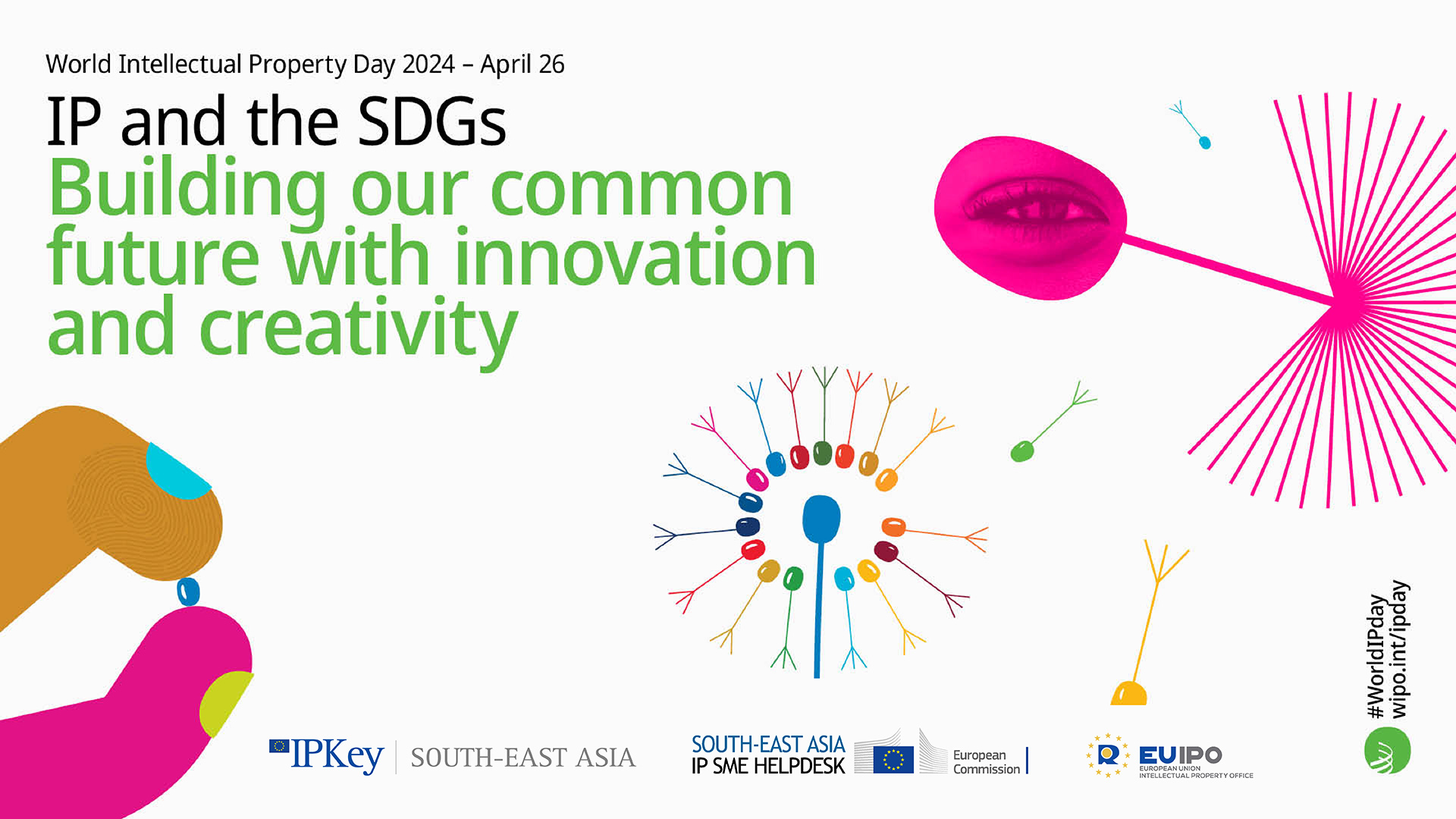How Intellectual Property Contributes to Sustainability
Business is not only about profits. For many companies, the bottom line is not always the only concern, as they were created to solve some of the world’s most pressing problems. Likewise, intellectual property (IP) is not only about commerce. The logic behind IP law has always been about striking the right balance between rewarding innovators, creators and artists and promoting public interest and creativity.
The connection between business, innovation, and sustainability has never been more critical. As the world confronts complex challenges, companies have a significant opportunity to drive change through innovative solutions. That is why, this year, World IP Day, which falls on 26 April, is going to be celebrated with the theme ‘IP and the Sustainable Development Goals (SDGs): Building our common future with innovation and creativity’. As explained by the World Intellectual Property Organization (WIPO), ‘World IP Day 2024 is an opportunity to explore how intellectual property encourages and can amplify the innovative and creative solutions that are so crucial to building our common future.’[1]
In line with this theme, two European SMEs have effectively embraced the vital role of innovation in sustainability. They have been diligently leveraging innovative solutions to shape their business activities, demonstrating a proactive approach in contributing to sustainable development. Hoping to create a more sustainable global food system, Entobel is a biotech company represented by two Belgian co-founders operating in Vietnam. The company produces insect protein, oil and frass from Black Soldier Fly larvae. Insect-based protein offers an eco-friendly alternative to fish meal, whose reliance on wild fish has led to overfishing, thus jeopardising both human food security and aquatic ecosystems.
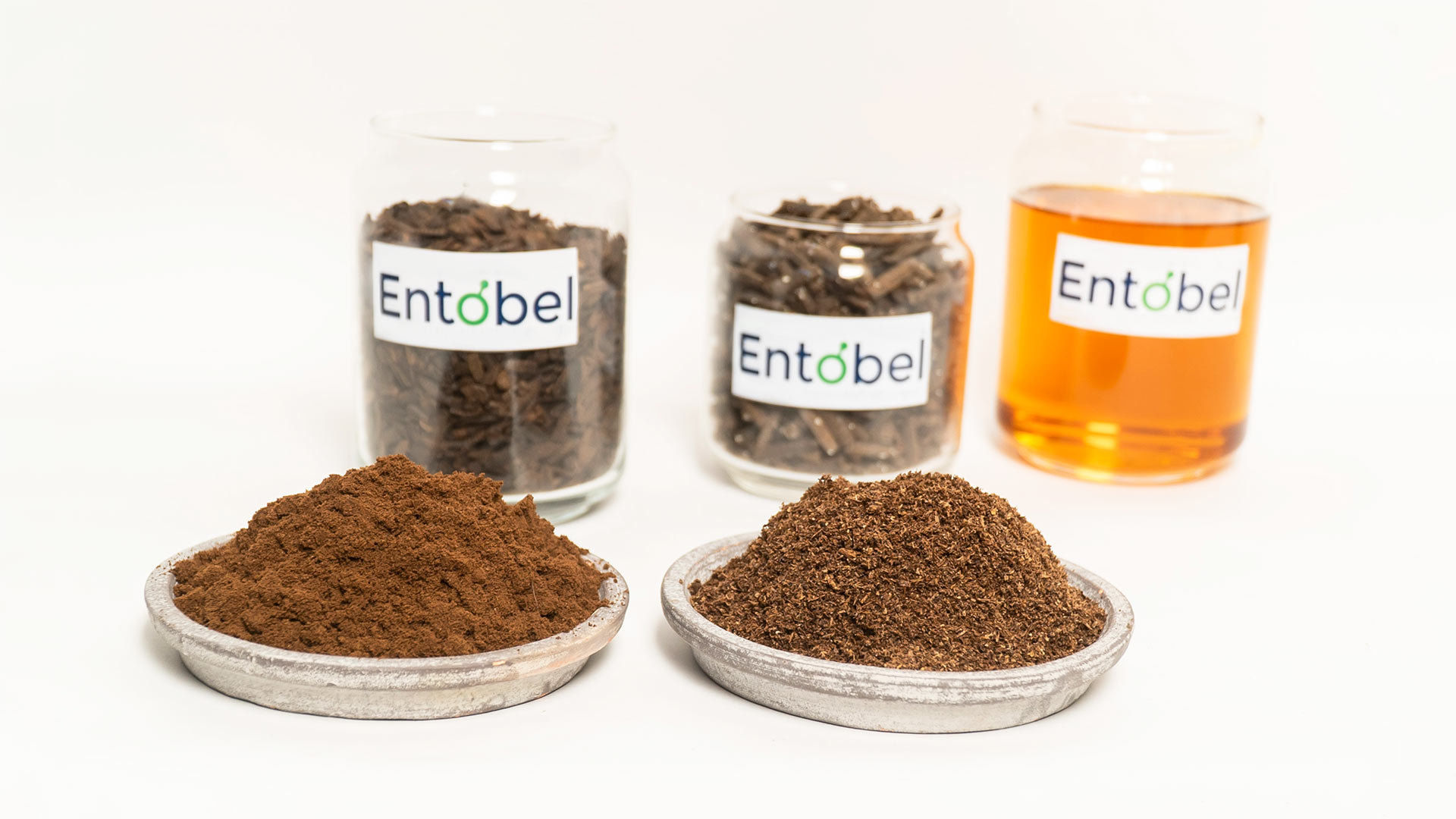
Entobel products: Insect protein, oil and frass from Black Soldier Fly larvae
‘Compared to fish meal, insect meal production has no negative impact on marine biodiversity,’ said Gaëtan Crielaard and Alexandre de Caters, the co-founders of Entobel. ‘Compared to other types of plant-based meal, our production doesn’t incur deforestation and reduces the use of land and water as well as chemical fertiliser. Moreover, when compared to other insect producers in Europe, we use lower energy and produce lower GHG (greenhouse gas) emissions. This is because we’re operating in a tropical climate that is already great for insect farming and we’re closer to substrate suppliers.’
At the other end of the human production-consumption cycle, SweepSmart, a Dutch-Indian social enterprise, has its mission to build a modern and efficient waste sector in emerging economies where the problems of waste mismanagement and plastic leakage are direst. Its services consist of consulting, designing, building, implementing and improving waste management infrastructure, including waste collection and sorting facilities. Key to their business is the formation of partnerships with the public and private sectors to tackle the waste problem while creating decent jobs for waste workers.
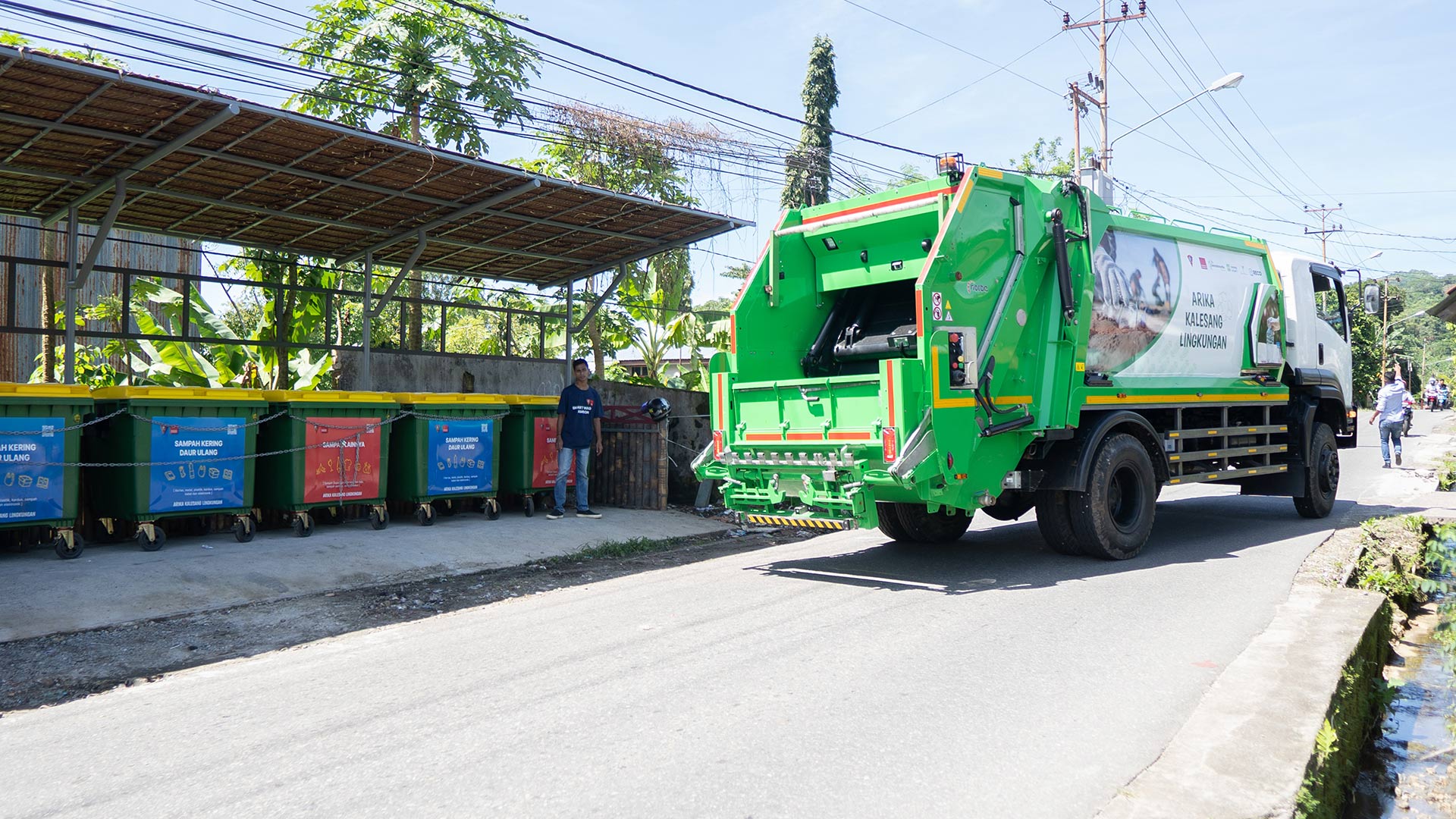
An innovative collection model with community collection points and a compactor truck implemented on Ambon Island, Indonesia
‘Waste management needs a good ecosystem. It’s a public service and we work with local government and other partners such as recycling companies and NGOs,’ said Silvia de Vaan, founder and CEO of SweepSmart. ‘We also need funders. Household waste by itself doesn’t have enough value, so funding is important.’
The operations of Entobel and SweepSmart contribute to a more sustainable planet and several of the United Nations’ SDGs. At full capacity, Entobel produces 10 000 metric tonnes of insect meal per year (SDG 2 – Zero Hunger and SDG 12 – Responsible Consumption and Production), which, in theory, reduces the amount of wild fish caught by 40 000 metric tonnes (SDG 14 – Life Below Water). It also upcycles around 185 000 metric tonnes of by-products annually, such as spent brewery grains, as part of its production process (SDG 9 – Industry, Innovation and Infrastructure) and has created around 200 jobs since the beginning of operations in 2019 (SDG 8 – Decent Work and Economic Growth).
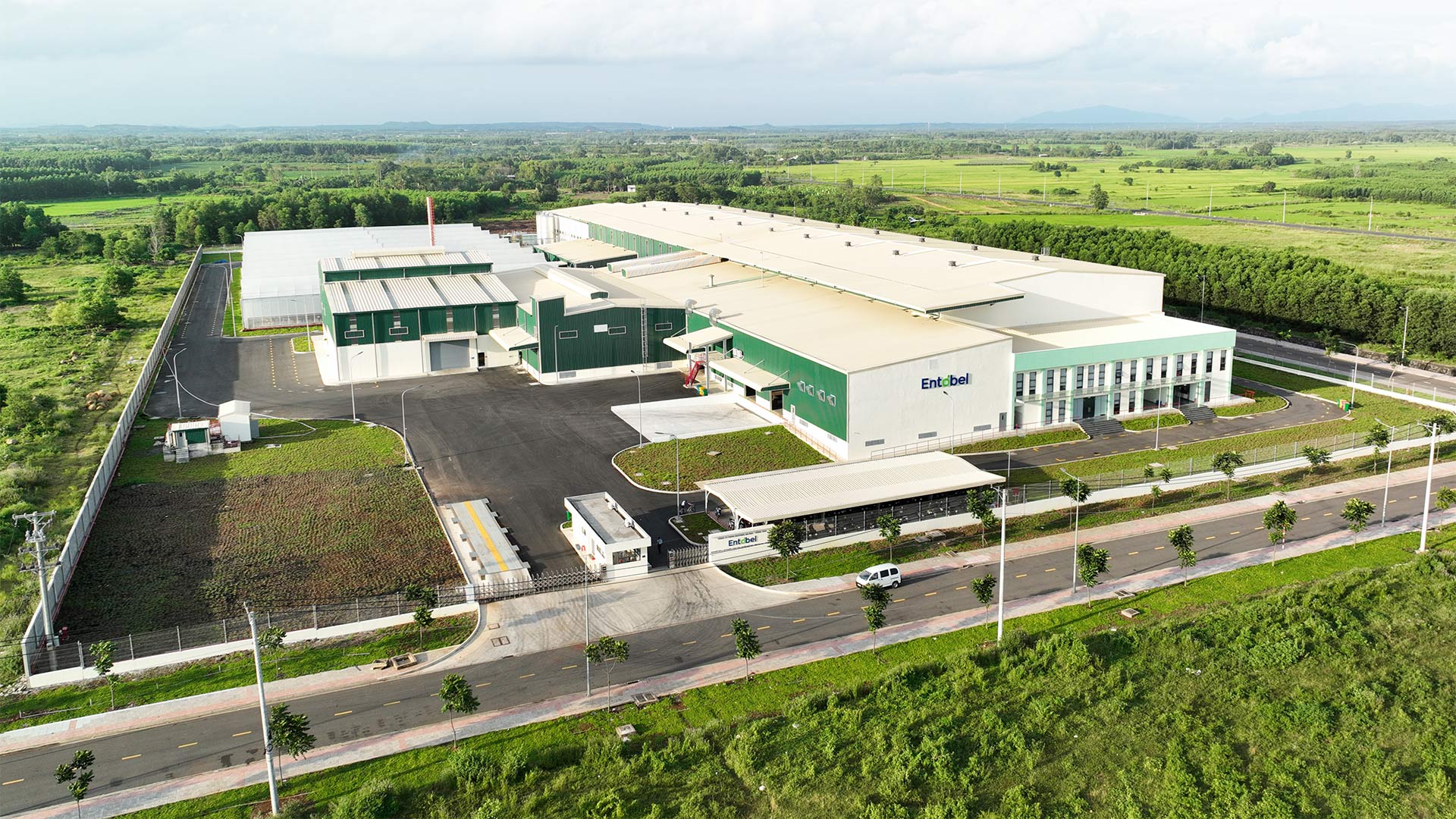
Entobel’s second plant in Vietnam (10 000 MT insect meal/year), the largest insect production plant in Asia
As for SweepSmart, their current total waste processing capacity is 55 000 tonnes per year. The company is working in seven countries and has so far built 16 smart waste centres in three countries, including two centres in Indonesia. It has collaborated with 47 partners and has trained 695 people, 53 % of whom are women and 25 % are informal workers.
SweepSmart’s impact translates to 11 out of the 17 SDGs, including SDG 3 – Good Health and Well-being (better waste management preventing diseases and air and water pollution), SDG 8 – Decent Work and Economic Growth (jobs with better working conditions for waste workers), SDG 11 – Sustainable Cities and Communities (communities with better waste management), SDG 12 – Responsible Consumption and Production (reducing resource usage and GHG emissions), and SDG 17 – Partnerships for the Goals (working with local partners).
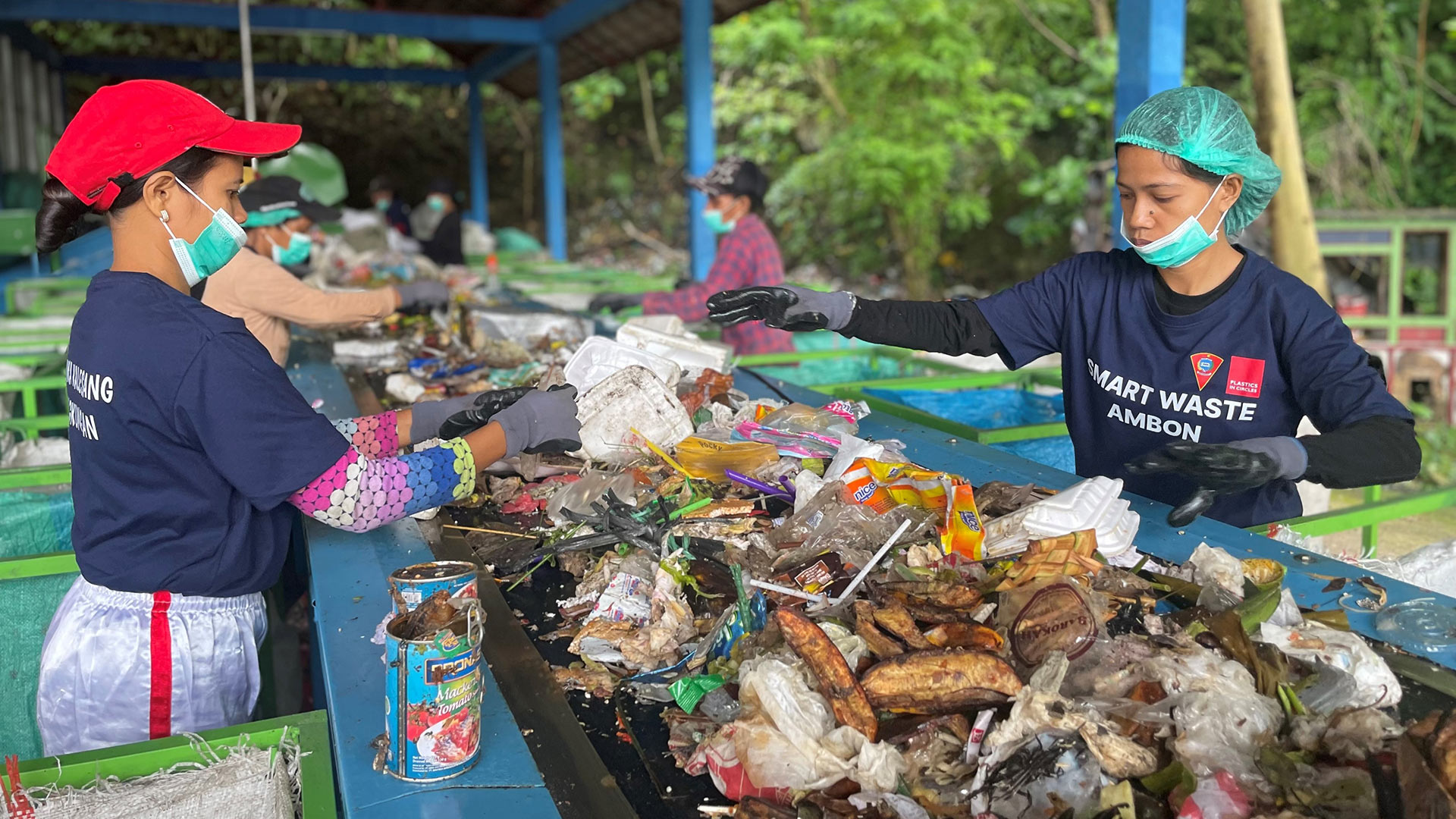
Waste workers sorting waste at a facility built by SweepSmart in Indonesia
To remain competitive and contribute to global sustainability, both companies understood the importance of IP and why they should protect their innovative solutions through specific mechanisms, notably the registration of IP rights. For Entobel, patenting is an ongoing process, not yet established, and the company’s focus today is on trade secrets.
SweepSmart, on the other hand, has accumulated significant know-how in designing, building and operating waste facilities, yet lacks patentable technology. As a result, the company has also built an IP strategy involving the protection of trade secrets and runs meticulous negotiations of each new partnership agreement, to safeguard their know-how but at the same time also serve their client’s needs.
As the private sector plays a big role in our common future, how they operate and what they create will have a far-reaching impact on our lives. For those attempting to contribute to the sustainability of our planet, IP rights, in particular, ensure their business survival and the nurturing and protection of their intangible assets. Without a well-functioning IP ecosystem, legitimate and much-needed companies will likely lose out, and, sadly, so will we as a society.
[1] https://www.wipo.int/web/ipday/2024-sdgs/index
This article was co-developed by the IP Key South-East Asia project and the South-East Asia IP SME Helpdesk.
Directed by the European Commission and implemented by the European Union Intellectual Property Office (EUIPO), IP Key South-East Asia aims to support IP rights protection and IP enforcement in the region and to facilitate market access to international trading partners, especially EU businesses and innovators. The South-East Asia (SEA) IP SME Helpdesk is an initiative of the European Commission which supports small and medium sized enterprises from the EU and the other countries of the Single Market Programme (SMP)* to both protect and enforce their IP rights in or relating to South-East Asian countries, through the provision of free information and services. Entobel and SweepSmart are among the 1 303 European SMEs and intermediaries that have received support from the South-East Asia IP SME Helpdesk.
*The Single Market Programme countries are currently all EU member states plus Norway, Iceland, Liechtenstein, Turkey, Ukraine, North Macedonia, Kosovo* and Bosnia and Herzegovina.
